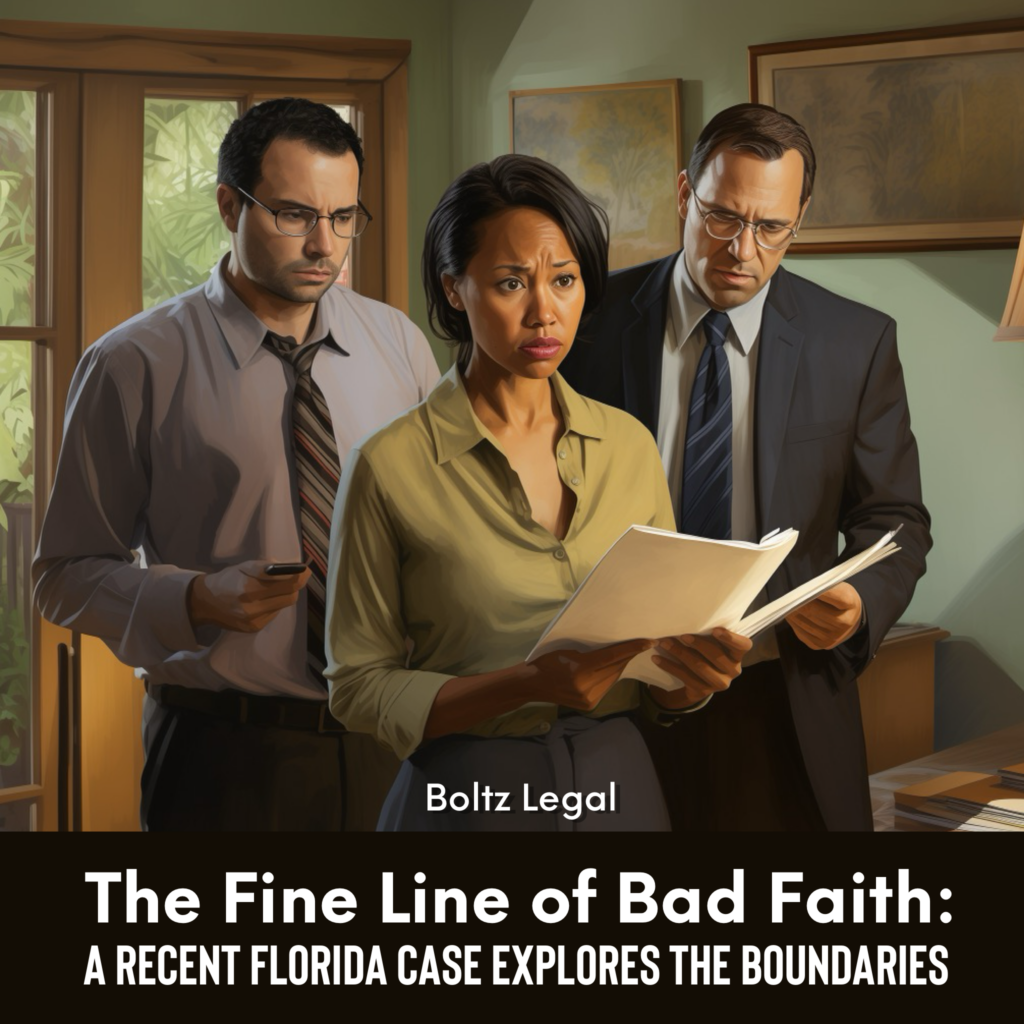In insurance litigation, the term “bad faith” often triggers an elaborate dance between insurers and the insured. A recent Florida case, Benjamin D. Markuson, Erik Saterbo, and Stephen Saterbo v. State Farm Mutual Automobile Insurance Company, 2nd District Court of Appeals, Case No. 2D21-2443. September 15, 20231 provides valuable insights into what constitutes bad faith in the refusal of settlement offers by insurance companies.
The appellants, Markuson and the Saterbos, found themselves on the losing side of a partial final summary judgment. The court ruled that State Farm Mutual Automobile Insurance Company was under no legal duty to accept any of the three proposals for settlement issued by Markuson. These settlement proposals allowed for a consent judgment exceeding policy limits but did not indicate that State Farm would be released from bad faith liability.
State Farm relied heavily on a federal court decision, Kropilak v. 21st Century Insurance Co., to move for summary judgment. The court ruled in favor of State Farm, citing that the insurer had no obligation to its insured to accept consent judgments that exceed policy limits.
“Here, the thrust of the bad faith case turns on State Farm’s refusal to enter into a Cunningham-type agreement — that is, State Farm, in the plaintiffs’ view, had a duty to authorize its insureds to consent to a judgment more than five times the amount of the policy limit (thereby expediting the availability of a bad faith claim) and to do so without releasing State Farm from liability. But as the Eleventh Circuit observed, ‘Florida law is clear that an insurer has no duty to enter into a Cunningham agreement.
However, the appellate court found that the trial court had erred to the extent that it hadn’t considered other theories of bad faith, such as how State Farm handled Markuson’s claims against the Saterbos.
“We conclude that, as a matter of law, the trial court correctly determined that State Farm had no duty to enter into a Cunningham-type agreement. Thus, where there was no duty to accept the proposals, declining the proposals could not serve as the basis of the bad faith claim… For that reason, we must reverse the partial final judgment and remand for further proceedings.
The decision serves as a cautionary tale for both insurers and insured individuals, emphasizing the importance of understanding the legal duties and limitations inherent in insurance contracts.
Quick Thought!
“In law, a man is guilty when he violates the rights of others. In ethics, he is guilty if he only thinks of doing so.”
– Immanuel Kant
___________________________________________________________________________
1Benjamin D. Markuson, Erik Saterbo, and Stephen Saterbo v. State Farm Mutual Automobile Insurance Company, 2nd District Court of Appeals, Case No. 2D21-2443. September 15, 2023.

